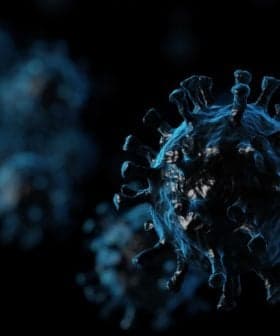Poor Diet Found to Be Major Risk Factor for Cancer
New research showed that eating nutritious foods and avoiding non-nutritious foods might help protect against cancer.
A study found that poor diet is as much of a cancer risk as excessive weight and inadequate exercise, with low fruit, vegetable, and whole grain consumption, as well as high red and processed meat intake being the main factors. The analysis, published in JNCI Cancer Spectrum, estimated that food intake might be responsible for 80,110 cancer cases in 2015, emphasizing the opportunity to reduce cancer burden and disparities by improving food intake in the United States.
A study found that a poor diet poses as much of a cancer risk as excessive weight and inadequate exercise. The malignancy-promoting dietary factors included low fruit, vegetable and whole grain consumption, as well as high red and processed meat intake.
The analysis, published in JNCI Cancer Spectrum, is one of the first to concentrate on the modifiable risk factors for cancer linked to diet. It estimated that food intake might be responsible for 80,110 of the cancer cases reported in 2015, about 5.2 percent of the total number reported.
Our findings underscore the opportunity to reduce cancer burden and disparities in the United States by improving food intake.
This proportion is on par with the four to six percent related to alcohol, the seven to eight percent tied to excessive weight and the two to three percent connected to physical inactivity.
“Our findings underscore the opportunity to reduce cancer burden and disparities in the United States by improving food intake,” Fang Fang Zhang, the study’s co-author and a cancer and nutrition researcher at Tufts University, said.
See Also:Health NewsTo calculate the cancer risk associated with poor diet, the scientists used risk estimates between the disease and dietary factors based on meta-analyses of prospective cohort studies. The studies came mainly from the American Institute for Cancer Research (AICR) Third Expert Report and the World Cancer Research Fund International.
The AICR report showed convincing or probable evidence exists for the following connections between cancer and food:
- Colon cancer is linked to low dairy and whole grain consumption, along with high red meat and processed meat consumption.
- Pharynx, mouth and larynx cancer is linked to low fruit and vegetable intake.
- Stomach cancer is linked to high processed meat consumption.
- Obesity and 12 types of cancer are linked to sugary beverage intake.
Analysis of the data revealed the results below:
- Colorectal cancer comprised the highest proportion of cancers related to poor diet in 2015, with 38.3 percent of cases. The second-highest proportion was cancer of the pharynx, mouth and larynx, with 25.9 percent of cases.
- Low whole grain consumption was tied to the largest percentage and number of new cancer cases. This was followed by low dairy intake, high processed meat intake, low fruit and vegetable intake, high red meat intake and high sugary beverage intake.
The cancer cases below were attributed to poor diet:
- colorectal cancer — 52,225
- pharynx, mouth and larynx cancer — 14,421
- uterine cancer — 3,165
- postmenopausal breast cancer — 3,059
- kidney cancer — 2,017
- stomach cancer — 1,564
- liver cancer — 1,000
According to the research team, the investigation had a few caveats. Self-reported dietary intake is subject to inaccuracies. Gender, ethnicity and age may also affect dietary risk factors linked to cancer.
The main point the study made is that a sizable percentage of cancer cases are due to poor diet, a factor that is modifiable.
Lisa Richards, a nutritionist and the creator of the Candida diet, told Olive Oil Times why these dietary factors are linked to decreased or increased cancer risk.
“Fruits and vegetables are rich in a number of different micronutrients that can help to reduce the risk of cancer,” Richards said. “These include vitamins, minerals, phytochemicals and antioxidants. By supporting your immune system, lowering inflammation and removing free radicals, these vital micronutrients can lower the likelihood of the disease. Because each fruit and vegetable has its own set of micronutrients, the best strategy is to eat a broad variety and as many as possible.”
“Red meat is strongly associated with higher rates of colorectal cancer, although the exact mechanism by which this happens is not yet clear,” she added. “Some evidence indicates that compounds in red meat damage the intestinal lining and produce chronic inflammation, which increases the risk of cancer. Moreover, red meat is also frequently cooked at very high temperatures, especially on the grill. These high temperatures can create carcinogenic compounds on the surface of the meat, known as advanced glycation end-products.”
“Processed meats typically contain large amounts of nitrates and nitrites, in addition to high levels of saturated fat and salt,” Richards concluded. “All of these have been individually linked to higher rates of cancer.”









